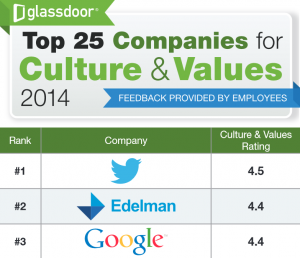 Which brand do you prefer as a consumer—Apple or Google? Which company would you rather work for as an employee—Apple or Google? Which company would you rather invest in as a shareholder—Apple or Google?
Which brand do you prefer as a consumer—Apple or Google? Which company would you rather work for as an employee—Apple or Google? Which company would you rather invest in as a shareholder—Apple or Google?
Are your answers to those questions the same or different? For many people, their answers will be different because we prioritize different factors when evaluating a brand as a consumer versus as an employee or investor.
As Google and Apple trade the top spot in the list of the most valuable global brands from year to year, both brands continue to enjoy positive brand reputations from most of their key stakeholders. However, all news hasn’t been good. Both companies have been in the news recently for having disproportionately high numbers of male executives, being intellectual property bullies, and compromising the security of consumers’ private information.
We can see what’s happening to these companies on the outside, and externally, they’re holding up just fine. But what is it like to work for these companies? Is the company culture at one company significantly better than the other?
Company culture can play a significant role in giving a business a competitive advantage in the marketplace, so evaluating the cultures of Google and Apple can give us a better perspective on how well these companies truly are positioned for the future.
Good.Co put together a culture analysis of the engineering teams at Apple vs. Google, and you might be surprised by some of the results. Considering how important the engineering teams are in terms of keeping both companies ahead of the innovation curve, it makes sense to compare and contrast the engineers and the cultures they work in each day.
According to the study, Apple engineers are more tolerant of stress than Google engineers. They also have greater social confidence, are more innovative, and more willing to take risks than Google engineers. On the other hand, Google engineers are more competitive, more collaborative, more empathetic, and more adaptable socially than Apple engineers.
Even more interesting is Good.Co’s analysis of the “group-level fit” of Apple and Google engineers. According to the analysis, Apple engineers are a better fit for Google’s company culture (66% fit to Google vs. 59% to Apple), and Google engineers are a better fit for Apple’s company culture (56% fit to Apple vs. 52% fit to Google).
Company culture can have a significant impact on business success. Imagine if one of these companies had a team of engineers who were a 100% fit for their company culture. Do you think the battle for first place in the annual list of the most valuable global brands would still be as close?
Are your employees the right fit for your company culture? How does your company culture affect your brand image for customers, employees, investors, and other key stakeholders? Invest the time and money into developing a company culture that effectively supports your brand promise or you’ll be missing a huge competitive advantage.
Image: DaVinciS
Lucy is Editor at Corporate Eye


